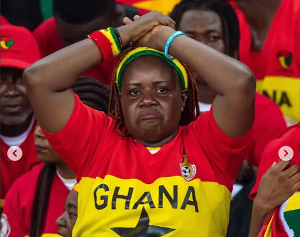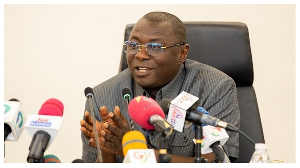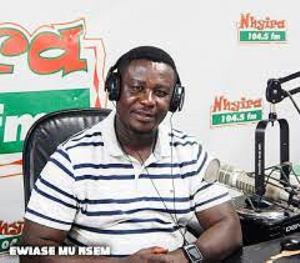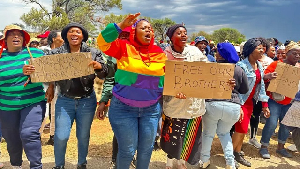The most amazing fact of history is that nobody learns from the lessons of history. And this fact was palpable within the recent nationwide primaries held by the NPP. When people are not in power, the way and manner they talk about democracy is altogether different from how they talk about democracy when they assume power.
When people assume power, they usually want to change the way and manner in which democracy works: They usually want to vary or alter the means and pathways by which they assumed power to make it more difficult or even impossible to replace them using the same means and pathways. After they enter the sanctum of power, they want to lock the door and throw the key into the ocean.
This is particularly true of the new narrative hatched by both the NPP and NDC parliamentarians who find themselves ensconced in the protective privileges of parliament house. These honorable parliamentarians are calling for their parties to curb the democratic primaries couched in the context of their parties’ constitutions in order to give them free pass to protect or retain them and to shield them from the vagaries of the primaries.
Instead of going through the primaries like everybody else, these members are crying for some unfathomable and inarticulable process whereby so-called seasoned parliamentarians will be retained without going through the needle eye of the primaries.
And they seem to have succeeded substantially because in the current NPP primaries, sixty-eight members of parliament were declared unopposed after quite a large number of prospective candidates were surreptitiously and peremptorily disqualified to pave the way for them to run unopposed.
The hypocrisy of all these people is that they would be arguing the opposite were they those who were to contest incumbent sitting MP’s. If the tables were to turn, they would be the ones crying foul and shouting rambunctiously that democracy had been upended within the party.
And that is how the eternal mantra, “Do unto others that which you would like them to do to you” comes into play. The test for morality, ethics and principles is where one weighs his actions by the reversal of roles: What if I were at the opposite side?
People talk about the experience in parliament as if they were already experienced when they initially went to parliament. It is also as if those candidates they worked so hard to defeat had no experience in the august House. If the logic they are now euphuistically espousing was applied to them when they were contesting, they wouldn’t be there in parliament to claim any experience.
The illogicality and irrationality of their morbid peroration, therefore, portray them as rather inexperienced in basic reasoning which is the fundamental prerequisite of parliamentary duties. They also expose with dangerous frequency their lack of understanding of the democratic process and display their patent disrespect for the people at whose behest they serve. And all these show that they are the ones who are very inexperienced.
Now their shenanigans and chicanery are stinking all over the place! Sixty-eight of these generally inexperienced members of parliament have been declared unopposed without having to go through the mill of the primaries.
Their challengers were generally disqualified on the basis of some flimsy grounds which the various members of the vetting committees made up themselves. Somehow, there is no uniformity in the grounds for disqualification, and the various grounds alleged were constituency-specific.
And so we have the situation where we have truncated the choice of the voters whereas we don’t even have the capacity to root reasons in the context of the party or national constitution. Everything was done pell mell. And as part of this whole rogue pattern of elimination, we have set up a protocol to dismiss from the party those who go independent or resort to the courts.
We have never learned any wisdom from the 2008 defeat in which the NPP lost to the NDC by 25,000 votes. In that election, the margin of defeat was less than the spoiled ballots that were destroyed. And before that defeat, the NPP had arrogantly engaged in the same pattern of misconduct: Retaining many of these parliamentarians to run unopposed.
So the party lost power on account of the roguish manner in which it abandoned the democratic principles at the constituency level. Fortunately, because of the stark weakness of the opposition candidate, it is possible for the NPP to retain power this time around. But the NPP could be weakened so much through the internecine infighting brought on by this undemocratic practice that the party could lose in 2024.
So why not do the right thing in these primaries to strengthen the internal democratic process? The perception should be that once any contestant meets the party’s constitutional prerequisites, the only job left for the vetting committees should be merely ministerial. Those committees should not be permitted to make their own local rules to disqualify contestants unless the bases for the disqualification are clearly set out in the party’s or national constitution.
And this is fair because incumbent parliamentarians already have several advantages over their challengers: They have the name recognition and the constituency contacts together with the abundant resources all behind them.
They have had all the media exposure through their work in parliament as well as in their constituencies. They also do not have any term limits and can run as many times as they like. So they are well placed to win if they have done their work well with their constituents. If they fail to get past the primary votes of their constituents, it is a damning indictment against them for which they have themselves to blame.
The process can therefore not be scrambled for them to win past those they represent.
In the just-ended primaries, about 50% of those incumbent parliamentarians who had to contest their seats lost to their challengers. It is, therefore, possible that 50% of those who went unopposed could have also lost. And if they are proceeding to parliament without having subjected themselves to the vote of the people, their positions are clearly untenable and they are in essence illegitimate members of parliament who have no business representing the people who did not choose them.
For if the President of the nation is constitutionally subject to the democratic vote despite his acquired experience, how does experience suddenly become the sole factor for retaining parliamentarians?
And who decides this abstract experience? What about abolishing our entire democratic process altogether to retain the President, party executives, assembly members and all these others who can make this same disingenuous argument that they have gained experience?
Because this is exactly where we are headed: The abolishment of the entire democratic process and its substitution with fascist notions that those who presently hold power should be allowed to maintain their power because they know what is best for this country.
For if you think about it, all those in power hate the idea of subjecting themselves to the vote of the people. And all those outside of the realm of power are shouting loudly for the franchise to be sustained. If we get rid of the votes in any instance, we have become autocrats with no right to the democratic credentials of which the party has so much pride.
The party should represent the idea expressed by Dr. Assibey Yeboah who lost the primaries in the New Juaben South Constituency. He graciously stated that he wouldn’t have liked to go unopposed because if he had done so, he would have deprived the people from being represented by their darling boy.
He is the true darling boy who should one day be called upon to serve this country in a higher capacity!
Dr. Samuel Adjei Sarfo, Esq.
Austin, Texas, USA.
Opinions of Monday, 22 June 2020
Columnist: Dr. Samuel Adjei Sarfo

















